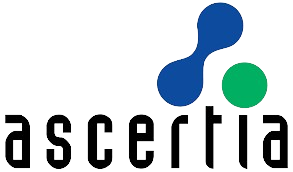Market and Use Cases for Digital Signature Solutions
Digital signature solutions offer a way to authenticate and secure electronic documents, eliminating the need for physical signatures and paperwork.
 With the increasing digitization of business processes, the need for secure and legally binding signatures has become paramount.
With the increasing digitization of business processes, the need for secure and legally binding signatures has become paramount.
Digital signature solutions offer a way to authenticate and secure electronic documents, eliminating the need for physical signatures and paperwork.
In this article, we will explore the market for digital signature solutions and discuss various use cases where they are being employed.
[box type=”info” align=”” class=”” width=””]
 Featured Partner: Ascertia.
Featured Partner: Ascertia.
Ascertia offers a comprehensive partner program that empowers businesses to leverage their cutting-edge solutions and build innovative products, such as:
- Catch Certificate partners with Ascertia to sign digital documents.
- Ascertia’s e-signature offering provides value to ADACOM’s finance customers.
- Altacom partners with Ascertia for eSignatures.
TrustAsia Technologies, Inc., a Chinese Certification Authority, is a partner of Ascertia. It’s known throughout China as a leading cybersecurity service provider, offering scalable solutions for digital certificates, identity authentication, data encryption and more.
It works with Ascertia via an integration built on the Cloud Signature Consortium’s API to unify digital signature applications and Trust Service Providers.
[/box]
Market for Digital Signature Solutions
The market for digital signature solutions has been growing rapidly in recent years, driven by factors such as increased security concerns, regulatory compliance requirements, and the need for efficient document management.. The global electronic signature market was valued at around $3.9 billion in 2022, and is projected to grow to $43.14 billion by 2030.
Organizations across various industries are recognizing the advantages of adopting digital signatures over traditional paper-based processes. The global digital signature market is expected to reach billions of dollars by 2025,
Digital signature solution providers offer a range of products and services to cater to different business needs. These solutions typically include features such as encryption, tamper-proofing, audit trails, and integration with existing document management systems. They can be implemented both on-premises and in the cloud, providing flexibility and scalability to organizations of all sizes.
Use Cases for Digital Signature Solutions
Digital signature solutions find applications in various industries and business processes. Some common use cases include:
- Contract Management: Digital signatures streamline the contract management process by enabling parties to sign and exchange contracts electronically. This eliminates the need for printing, scanning, and mailing physical documents, saving time and reducing costs.
- Financial Transactions: In the financial sector, digital signatures are used to authenticate and secure transactions such as loan agreements, insurance policies, and investment contracts. They provide a high level of security and ensure the integrity of sensitive financial documents.
- Government and Legal Documents: Digital signatures are widely used in government and legal sectors for signing and validating documents such as permits, licenses, court filings, and contracts. They offer a legally binding and tamper-proof method of authentication.
- HR and Employee Onboarding: Digital signatures simplify the onboarding process by allowing new employees to sign employment contracts, non-disclosure agreements, and other HR documents electronically. This improves efficiency and reduces paperwork.
- Healthcare and Pharmaceuticals: In the healthcare industry, digital signatures are used to sign medical records, prescriptions, and consent forms. They ensure the privacy and security of patient information and comply with regulatory requirements.
- Supply Chain and Logistics: Digital signatures play a crucial role in supply chain and logistics management by enabling secure and authenticated document exchange between different stakeholders. They help streamline processes and reduce the risk of fraud.
Benefits of Digital Signature Solutions
Digital signature solutions offer numerous benefits to organizations:
- Enhanced Security: Digital signatures use encryption and cryptographic algorithms to ensure the authenticity and integrity of documents. They provide a higher level of security compared to traditional paper-based signatures.
- Cost and Time Savings: By eliminating the need for printing, scanning, and mailing physical documents, digital signatures save both time and money. They streamline processes and reduce administrative overheads.
- Improved Efficiency: Digital signatures enable faster document turnaround times, as signing can be done electronically from anywhere, at any time. This improves overall business efficiency and customer satisfaction.
- Legal Compliance: Digital signatures comply with various international and industry-specific regulations, such as eIDAS in the European Union and the U.S. Electronic Signatures in Global and National Commerce Act (ESIGN Act). They provide a legally binding and tamper-proof method of authentication.
- Environmentally Friendly: By reducing the reliance on paper-based processes, digital signatures contribute to environmental sustainability. They help organizations reduce their carbon footprint and promote a paperless working environment.
Implementing Digital Signature Solutions
Implementing digital signature solutions involves several key steps:
- Evaluate Business Needs: Assess your organization’s requirements and identify the specific use cases where digital signatures can bring the most value.
- Select a Provider: Research and choose a reputable digital signature solution provider that offers the features and functionalities aligned with your business needs.
- Integration: Determine how the digital signature solution will integrate with your existing systems and processes, such as document management systems or CRM platforms.
- Training and Adoption: Provide proper training to employees on how to use the digital signature solution effectively. Encourage adoption and address any concerns or resistance to change.
- Monitor and Improve: Continuously monitor the usage and effectiveness of the digital signature solution. Gather feedback from users and make improvements as necessary.
Conclusion
Digital signature solutions have revolutionized the way organizations authenticate and secure electronic documents. The market for these solutions is growing rapidly, driven by the need for enhanced security, regulatory compliance, and efficient document management.
With a wide range of use cases across industries, digital signatures offer numerous benefits, including improved security, cost savings, and increased efficiency. By implementing digital signature solutions, organizations can streamline their processes, reduce paperwork, and contribute to a more sustainable working environment.



